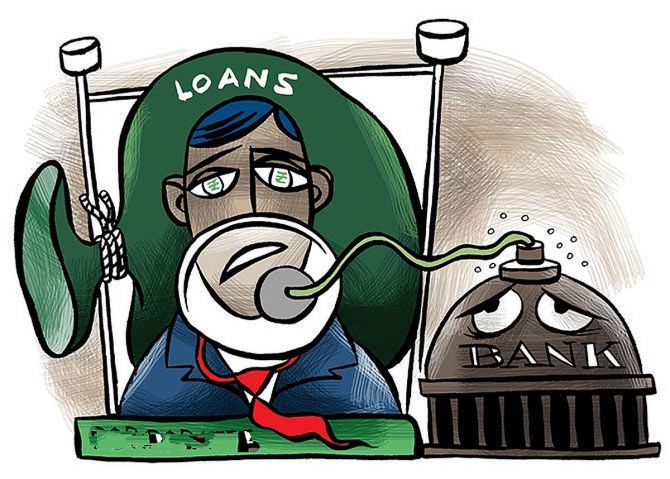The accumulated interest will increase the principal and you will have to pay a higher rate. Borrowers should take the restructuring plan only after they are convinced they have exhausted all other options.

Two banks - State Bank of India and HDFC Bank - have so far published their frameworks for restructuring loans.
One key difference that borrowers need to bear in mind is that while in the first phase of the moratorium (March-August), the interest rate remained the same, this time the moratorium could come with a cost attached.
Key preconditions: To avail of the moratorium, borrowers will have to demonstrate that their income has been impacted by the pandemic.
Salaried employees will need to furnish their salary slips or account statements.
Self-employed borrowers will need to furnish a declaration.
Only accounts that existed in banks’ books on March 1, 2020 will be eligible for restructuring.
“Basically, this benefit is available for pre-Covid accounts only.
"If someone took a loan after the pandemic started, they should have factored in the risks. This benefit is not available to them,” says Aditya Mishra, founder and chief executive officer (CEO), SwitchMe, a digital home loan broker.
The loan also needs to be a standard loan and should not have been in default for more than 30 days on March 1, 2020.
In other words, banks will not offer this facility to customers who were already having difficulties in making payments before the start of the pandemic.
The borrower’s tenure will be extended by the same duration as the moratorium.
If his original tenure was 15 years for a home loan and he takes the moratorium for two years, his tenure can go up to 17 years.
Beyond that his EMI will be revised upward.
Be aware of the cost: When a borrower avails of the moratorium for, say, two years, all the interest that accumulates during this period (at a higher rate - 35 basis points in the case of SBI) will get capitalised.
This means it will get added to the principal once the moratorium ends.
At the end of the moratorium, his EMI will be recalculated.
It will be higher on account of two factors.
“The principal will now be higher because of the addition of the accumulated interest.
"Also, the interest rate you will pay for the rest of tenure will be higher,” says Mishra.
Borrowers must bear in mind a few caveats. Your age and the product must permit this extension of tenure.
SBI has, for instance, relaxed the age criteria (your loan tenure should end by this age) from 75 to 77 years.
If somebody wants an extension of two years and doing so will take his loan beyond 77 years, he will not get it.
Bankers are also likely to factor in a couple of other criteria.
One is loan to value (LTV).
“Lenders may relax the LTV, but they are still not likely to go beyond 90 per cent of the property value in case of home loans.
"So, if the outstanding amount and the accrued interest on it during the moratorium exceeds the permitted LTV, you may have to opt for a shorter moratorium,” says Adhil Shetty, chief executive officer, Bankbazaar.
Banks also likely to cap the FOIR (fixed-income to obligation ratio of borrowers) at 50 per cent.
That factor too may limit the length of the moratorium that is offered.
Ideal period of moratorium: Borrowers need to figure out by when they will get back to their pre-Covid repayment capacity.
Suppose your company says your salary will normalise after six months.
In that case, add a buffer of three months and take a moratorium for nine months.
On the other hand, you may have lost your job.
“If you expect the job search to take 12 months, add another six months and ask for a moratorium of 18 months,” says Shrikant Shrivastava, chief risk officer, India Mortgage Guarantee Corporation (IMGC).
The uncertainty in the environment necessitates having a buffer.
Meaning of ‘restructured’ account: According to the HDFC Bank FAQ (frequently asked questions), once you avail of the moratorium, your loan account gets classified as ‘restructured’.
Suppose that you have two taken two loans from a bank and opt for moratorium on only one.
“All loans or other forms of credit facilities availed by a borrower opting for the recast facility from a particular lender will be reflected as ‘restructured’ in their credit report,” says Naveen Kukreja, CEO & co-founder, Paisabazaar.com.
If banks are being cautious, they may reject applications from people who have availed of restructuring.
Says Kukreja: “While it remains to be seen how this may impact an individual's credit score, it would most likely adversely affect his eligibility for loans, at least in the near future.
"Any mention of restructured loans or credit card dues in it can considerably reduce the probability of availing credit, especially in the current scenario when all lenders are being conservative in issuing new loans.” Kukreja.
As soon as your liquidity position begins to improve, think of pre-paying your loans.
Another option is to switch to a lower-cost loan.
But it remains to be seen whether a balance transfer will be possible in case of such restructured accounts. Before signing the revised agreement, check for other terms and conditions that might be there.
Finally, according to Shetty, borrowers should take the restructuring plan only after they are convinced they have exhausted all other options.











